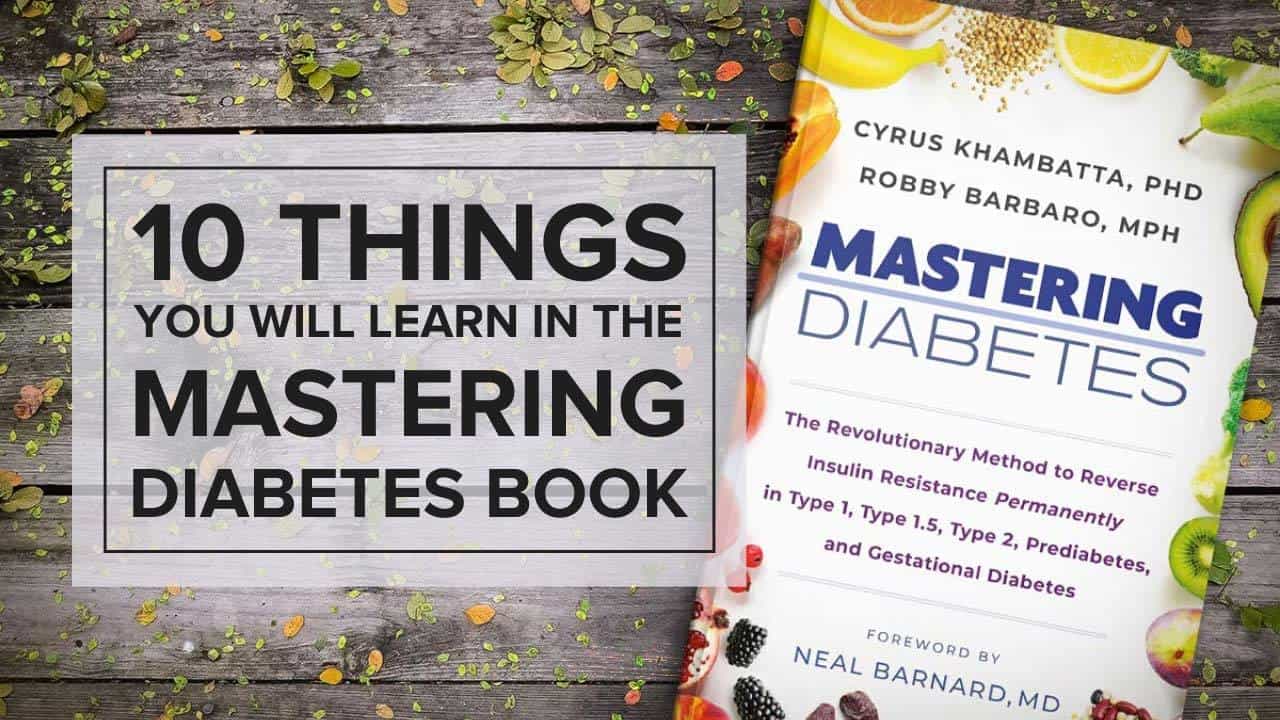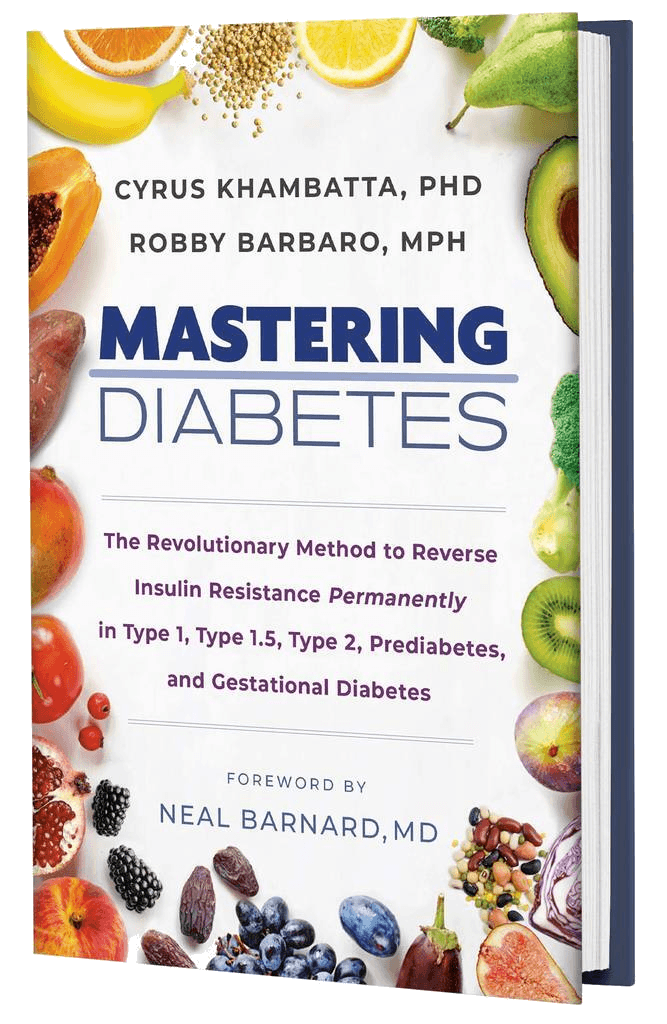Cyrus Khambatta, PhD is a New York Times bestselling co-author of Mastering Diabetes: The Revolutionary Method to Reverse Insulin Resistance Permanently in Type 1, Type 1.5, Type 2, Prediabetes, and Gestational Diabetes.
He is the co-founder of Mastering Diabetes and Amla Green, and is an internationally recognized nutrition and fitness coach who has been living with type 1 diabetes since 2002. He co-created the Mastering Diabetes Method to reverse insulin resistance in all forms of diabetes, and has helped more than 10,000 people improve their metabolic health using low-fat, plant-based, whole-food nutrition, intermittent fasting, and exercise.
Cyrus earned a Bachelor of Science in Mechanical Engineering from Stanford University in 2003, then earned a PhD in Nutritional Biochemistry from the University of California at Berkeley in 2012. He is the co-author of many peer-reviewed scientific publications.
He is the co-host of the annual Mastering Diabetes Online Summit, a featured speaker at the Plant-Based Nutrition and Healthcare Conference (PBNHC), the American College of Lifestyle Medicine Conference (ACLM), Plant Stock, the Torrance Memorial Medical Center, and has been featured on The Doctors, NPR, KQED, Forks Over Knives, Healthline, Fast Company, Diet Fiction, and the wildly popular podcasts the Rich Roll Podcast, Plant Proof, MindBodyGreen, and Nutrition Rounds.
Scientific Publications:
Sarver, Jordan, Cyrus Khambatta, Robby Barbaro, Bhakti Chavan, and David Drozek. “Retrospective Evaluation of an Online Diabetes Health Coaching Program: A Pilot Study.” American Journal of Lifestyle Medicine, October 15, 2019, 1559827619879106. https://doi.org/10.1177/1559827619879106
Shrivastav, Maneesh, William Gibson, Rajendra Shrivastav, Katie Elzea, Cyrus Khambatta, Rohan Sonawane, Joseph A. Sierra, and Robert Vigersky. “Type 2 Diabetes Management in Primary Care: The Role of Retrospective, Professional Continuous Glucose Monitoring.” Diabetes Spectrum: A Publication of the American Diabetes Association 31, no. 3 (August 2018): 279–87. https://doi.org/10.2337/ds17-0024
Thompson, Airlia C. S., Matthew D. Bruss, John C. Price, Cyrus F. Khambatta, William E. Holmes, Marc Colangelo, Marcy Dalidd, et al. “Reduced in Vivo Hepatic Proteome Replacement Rates but Not Cell Proliferation Rates Predict Maximum Lifespan Extension in Mice.” Aging Cell 15, no. 1 (February 2016): 118–27. https://doi.org/10.1111/acel.12414
Roohk, Donald J., Smita Mascharak, Cyrus Khambatta, Ho Leung, Marc Hellerstein, and Charles Harris. “Dexamethasone-Mediated Changes in Adipose Triacylglycerol Metabolism Are Exaggerated, Not Diminished, in the Absence of a Functional GR Dimerization Domain.” Endocrinology 154, no. 4 (April 2013): 1528–39. https://doi.org/10.1210/en.2011-1047
Price, John C., Cyrus F. Khambatta, Kelvin W. Li, Matthew D. Bruss, Mahalakshmi Shankaran, Marcy Dalidd, Nicholas A. Floreani, et al. “The Effect of Long Term Calorie Restriction on in Vivo Hepatic Proteostatis: A Novel Combination of Dynamic and Quantitative Proteomics.” Molecular & Cellular Proteomics: MCP 11, no. 12 (December 2012): 1801–14.
https://doi.org/10.1074/mcp.M112.021204
Bruss, Matthew D., Airlia C. S. Thompson, Ishita Aggarwal, Cyrus F. Khambatta, and Marc K. Hellerstein. “The Effects of Physiological Adaptations to Calorie Restriction on Global Cell Proliferation Rates.” American Journal of Physiology. Endocrinology and Metabolism 300, no. 4 (April 2011): E735-745. https://doi.org/10.1152/ajpendo.00661.2010
Bruss, Matthew D., Cyrus F. Khambatta, Maxwell A. Ruby, Ishita Aggarwal, and Marc K. Hellerstein. “Calorie Restriction Increases Fatty Acid Synthesis and Whole Body Fat Oxidation Rates.” American Journal of Physiology. Endocrinology and Metabolism 298, no. 1 (January 2010): E108-116.
https://doi.org/10.1152/ajpendo.00524.2009










